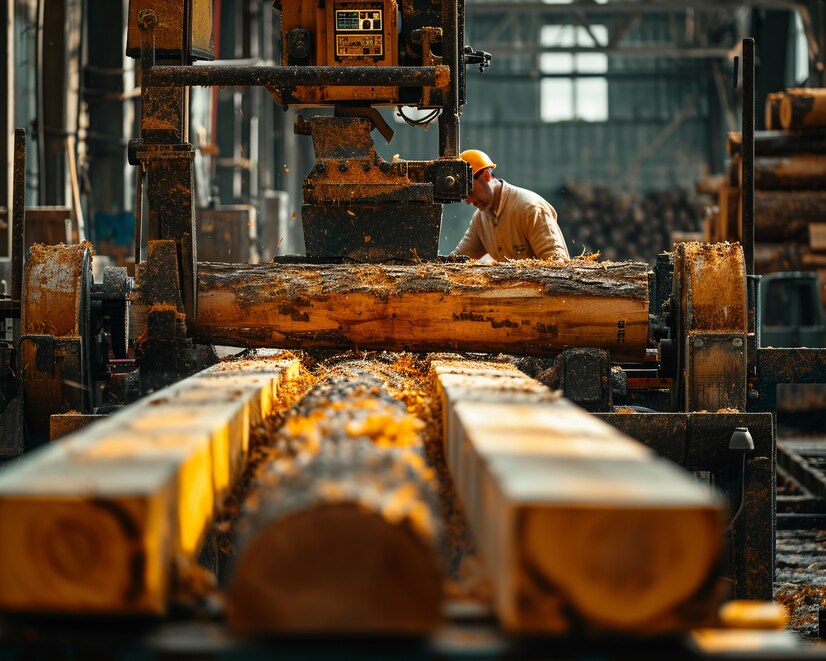The Difference Between Punching Machine and Oil Hydraulic Press

Strong 8k brings an ultra-HD IPTV experience to your living room and your pocket.
Choosing the Right Machinery for Metal Fabrication
In metal fabrication, picking the right machinery is key. You'll often see punch presses and hydraulic punch press machines (also called oil hydraulic presses). They both shape or pierce metal but work in different ways. It's important to know which one fits your needs best.
This blog will explain the main differences between punch machines and oil hydraulic presses. We aim to help you choose the right one for your project.
What Is a Punch Press?
A punch press cuts holes or shapes in sheet metal by applying high pressure. It uses a punch and die system. The machine can be powered mechanically or by a servo-electric drive, making it fast and good for repetitive tasks.
Key Features of Punch Presses:
High-speed operation
Best for thin sheet metals
Suitable for mass production
Precision and consistency in repeated tasks
Minimal energy consumption per punch
Common Applications:
Creating holes, notches, or patterns in sheet metal
Used in automotive, electronics, and appliance manufacturing
Ideal for repetitive punching tasks on production lines
What Is a Hydraulic Punch Press Machine?
An oil hydraulic press, or hydraulic punch press machine, uses fluid pressure (usually oil) to generate force. It works at a slower pace than a mechanical punch press but offers more power and control.
Key Features of Hydraulic Punch Press Machines:
Capable of high force and deep drawing operations
Superior control over stroke and pressure
More versatile in terms of material thickness and complexity
Slower cycle times compared to mechanical presses
Requires regular maintenance of the hydraulic system
Common Applications:
Deep drawing of metal sheets
Bending, molding, and forming thicker metals
Low to medium production volumes
Suitable for more complex or irregular tasks
Punch Press vs Hydraulic Punch Press Machine: Key Differences
Let's look at the main differences between punch presses and hydraulic punch press machines:
1. Operating Principle
Punch Press: Uses mechanical or servo-electric force. The punch strikes the material with rapid, repeated motion.
Hydraulic Punch Press Machine: Uses hydraulic pressure via oil and a piston to slowly apply force.
Winner: It depends on the task. Mechanical punch presses are quicker, while hydraulic presses offer more control.
2. Speed and Efficiency
Punch Press: Much faster, ideal for high-volume operations where speed is critical.
Hydraulic Press: Slower due to hydraulic cycles, but offers smoother motion and better precision in certain tasks.
Winner: Punch press for speed; hydraulic punch press for precision.
3. Force Output
Punch Press: Limited force output; not suitable for very thick or hard materials.
Hydraulic Punch Press: Capable of delivering significantly higher forces, ideal for forming or deep drawing heavy materials.
Winner: Hydraulic punch press machine
4. Versatility
Punch Press: Great for punching holes and cutting, but limited to sheet metal and simpler tasks.
Hydraulic Punch Press Machine: Extremely versatile; can punch, bend, draw, or form a wide variety of shapes and thicknesses.
Winner: Hydraulic punch press machine
5. Precision and Control
Punch Press: High accuracy in repetitive tasks, but less flexible when it comes to variable depth or force control.
Hydraulic Press: Allows precise control over force and stroke, ideal for intricate work.
Winner: Hydraulic punch press machine
6. Energy Consumption
Punch Press: More energy-efficient in high-volume environments.
Hydraulic Punch Press Machine: Consumes more energy, especially when maintaining pressure over time.
Winner: Punch press, especially in mass production scenarios.
7. Maintenance and Durability
Punch Press: Simpler mechanism, generally lower maintenance.
Hydraulic Press: Requires regular checks of oil levels, seals, and hydraulic lines.
Winner: Punch press for ease of maintenance
When to Choose a Punch Press
You should consider a punch press if:
You are working primarily with thin sheet metal
Speed and repeatability are more important than force
You have high-volume production needs
You want lower energy costs and simple maintenance
Industries That Benefit:
Electronics
Automotive (for brackets, panels, etc.)
HVAC systems
Appliance manufacturing
When to Choose a Hydraulic Punch Press Machine
You should go for a hydraulic punch press machine if:
You work with thicker materials or need more complex shapes
Force and control are more important than speed
You handle multiple types of fabrication tasks
You require a quieter and smoother operation
Industries That Benefit:
Heavy machinery
Aerospace and defense
Shipbuilding
Custom fabrication and prototyping
Final Thoughts: Choosing the Right Machine for Your Shop
Both punch presses and hydraulic punch press machines are key in metalworking and manufacturing. Knowing their differences helps improve your shop's efficiency.
For high-speed punching on thin metals, a punch press is best. But for force, control, and versatility, the hydraulic punch press machine is the top choice.
Think about your workpieces, volume, and budget before buying. Large workshops often have both machines for various needs.
Note: IndiBlogHub features both user-submitted and editorial content. We do not verify third-party contributions. Read our Disclaimer and Privacy Policyfor details.


